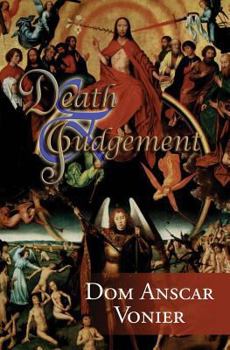Death and Judgement
Faced with the rising tide of modern skepticism about the spiritual nature of the soul, Vonier composed this book as a study in two great themes of Catholic theology: the immortality of the soul and the goodness of divine judgment.
His treatment of the soul presents the Church's teaching on the state of the soul after death, and the delivery from death found only in the resurrection. In his reflections on divine judgement, Vonier emphasizes the essential goodness of judgement as "the moral side of providence." Contrary to the fear and anxiety often associated with Christian judgment, Vonier shows that Christ's perfection as a judge is one of his most lovable aspects, insisting that "Genuine Christian sentiment has ever been deeply impregnated with this trait of Christ as the just Judge, and Christians have always found it possible to love him with the tenderest love because they know him to be such. ... Our Jesus would be less amiable if he were less true and less powerful in his judgements."
Praise for Abbot Vonier and "Death and Judgement"
"In this little book, Dom Vonier confronts the leaders of soul-shrinking secularism with the glorious standard of the risen Christ." -Edwin V. O'Hara, Bishop of Great Falls
"Dom Vonier's aim in all his spiritual writings is the instruction of Catholics. ... In his pages we have the accuracy of a theological textbook combined with the enthusiasm of the pulpit." -Michael Harty, in "The Furrow"
"To our thinking, Abbot Vonier is by all odds the foremost theological writer in the English language today. Although a Thomistic scholar, he can present doctrine not merely in the systematized manner of the scholastics, but also in the living manner of the liturgy, or, if you will, in the ... tradition of the Fathers, for whom theology was a loving consideration of the ways of God with man, and the appeal of whose writings consequently embraces heart and mind with equal immediacy. ... Thus many of his theological writings are simultaneously most fruitful 'spiritual reading'-which is what all theology should be." --"Orate Fratres"





